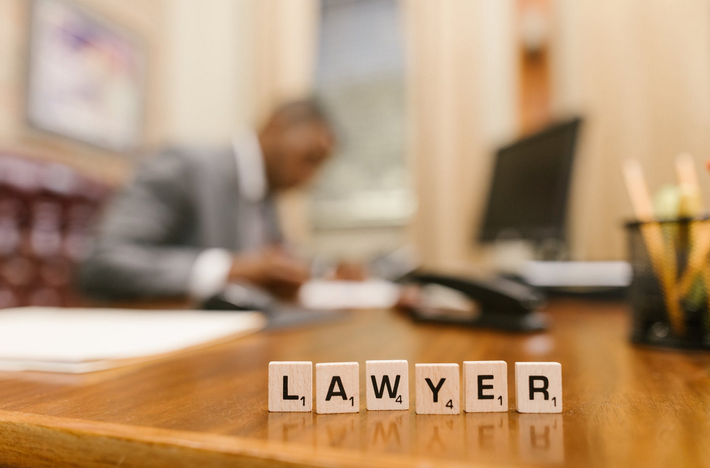5 Common Legal Proceedings Everyone Should Be Aware Of
Navigating the legal world can feel daunting. With terms that often sound foreign and processes that seem overwhelming, it’s easy to feel lost. However, understanding some common legal proceedings can empower you in various situations. Whether you’re facing a personal issue or just curious about how the system works, having this knowledge is invaluable. Let’s explore five key types of legal proceedings that everyone should be familiar with. Each one plays a crucial role in our society and affects countless lives every day. So, let’s dive in.
Civil Lawsuits
 Civil lawsuits arise when one party believes another has wronged them in a non-criminal manner. These disputes often involve contracts, property, or personal injuries. A plaintiff files a complaint against the defendant to seek compensation or remedy. The process starts with pleadings, where both parties outline their positions.
Civil lawsuits arise when one party believes another has wronged them in a non-criminal manner. These disputes often involve contracts, property, or personal injuries. A plaintiff files a complaint against the defendant to seek compensation or remedy. The process starts with pleadings, where both parties outline their positions.
Discovery follows, allowing each side to gather evidence and witness testimonies. This phase is crucial for building your case. After discovery, many civil cases go to trial if they can’t be settled out of court.
Criminal Proceedings
Criminal proceedings are a vital part of the justice system. They address offenses against the state, ranging from minor infractions to serious crimes. The process begins with an arrest, where law enforcement takes a suspect into custody based on probable cause. Following this, charges are filed by the prosecutor. A key stage is the arraignment, where defendants enter their pleas—guilty or not guilty. This determines how the case will proceed. If it goes to trial, both sides present evidence and arguments before a judge or jury.
Family Law Cases
Family law cases encompass a wide range of sensitive issues. These can involve divorce, child custody, and adoption. Each situation carries its own complexities. Divorce proceedings often bring emotional challenges. Couples must navigate asset division and spousal support while dealing with the strain on family dynamics. Both parties must understand their rights and responsibilities. Child custody battles can be particularly intense. Parents may struggle to reach agreements that serve the best interests of their children.
Bankruptcy Proceedings
Bankruptcy proceedings can be daunting. They offer individuals and businesses a chance to reset financially when debt becomes overwhelming. In a bankruptcy case, the court assesses your financial situation. This includes reviewing income, expenses, assets, and debts. Depending on the type of bankruptcy filed—Chapter 7 or Chapter 13—the process varies significantly. Chapter 7 allows for liquidation of non-exempt assets to pay creditors. It’s quicker but may involve losing valuable property.
Administrative Hearings
Administrative hearings are unique legal proceedings that occur within governmental agencies. These hearings often handle disputes involving regulatory compliance, licensing, or benefits. During these sessions, individuals can present their cases before an administrative law judge. This process is generally less formal than traditional court trials. Participants may represent themselves or hire legal counsel to navigate the complexities of agency rules and regulations. Evidence is presented, witnesses can be called, and arguments are made just like in a typical courtroom setting. The outcomes can significantly impact lives—ranging from job reinstatements to changes in public assistance programs.
Understanding the different types of legal proceedings is essential for navigating everyday life. Each type serves a distinct purpose and can impact individuals in various ways. Being informed about these common legal proceedings empowers you to handle situations effectively should they arise in your life. We hope that you have found this blog post helpful.…








 If your spouse has already hired an attorney to handle the divorce proceedings, you must get your own lawyer involved. Even if you and your spouse can negotiate a settlement without legal representation, having a knowledgeable professional can help ensure that your rights are protected and that all agreement details are fair.
If your spouse has already hired an attorney to handle the divorce proceedings, you must get your own lawyer involved. Even if you and your spouse can negotiate a settlement without legal representation, having a knowledgeable professional can help ensure that your rights are protected and that all agreement details are fair. The divorce process can be incredibly overwhelming, especially if you don’t have prior legal experience. An attorney can help ensure that all your paperwork is properly filled out and filed on time, reducing the stress associated with the proceedings. In addition, they will be able to provide valuable advice and answer any questions you may have.
The divorce process can be incredibly overwhelming, especially if you don’t have prior legal experience. An attorney can help ensure that all your paperwork is properly filled out and filed on time, reducing the stress associated with the proceedings. In addition, they will be able to provide valuable advice and answer any questions you may have.
 You can start your search for the best divorce lawyer by asking your friends and family members if they know of anyone. If you don’t feel comfortable doing this, you can also look online for referrals. A few different websites offer referrals for all types of lawyers, including divorce lawyers.
You can start your search for the best divorce lawyer by asking your friends and family members if they know of anyone. If you don’t feel comfortable doing this, you can also look online for referrals. A few different websites offer referrals for all types of lawyers, including divorce lawyers. It would be best to be mindful of the cost when hiring a divorce lawyer. The last thing you want is to get stuck with a huge bill that you can’t afford. It would help if you always asked for a breakdown of the fees before hiring any lawyer. You may have to part ways with a good lawyer if the costs are too high.
It would be best to be mindful of the cost when hiring a divorce lawyer. The last thing you want is to get stuck with a huge bill that you can’t afford. It would help if you always asked for a breakdown of the fees before hiring any lawyer. You may have to part ways with a good lawyer if the costs are too high.